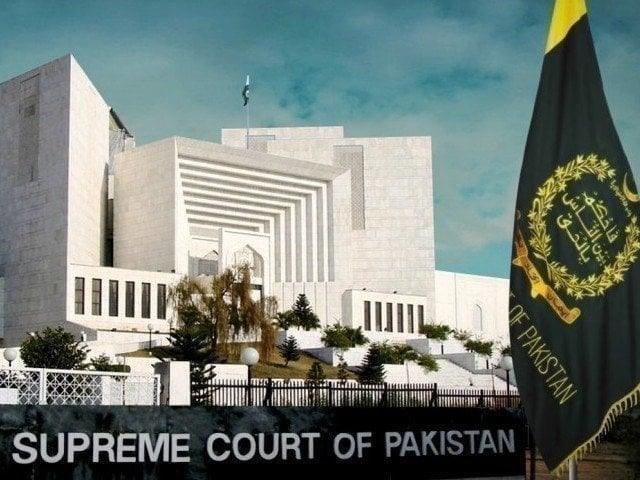The Head of the Supreme Court of the Constitutional Banc of Pakistan said that the laws cannot be canceled only because of their abusive use, stressing the principle that the poor application of legal provisions does not make them unconstitutional.
The remarks occurred during an intra-short appeal concerning the trial of civilians by military courts.
The case, heard by a constitutional bench of seven members led by chief judge Amin-Uud-Din Khan, revolves around the controversial question of civilians tried by military courts for alleged crimes.
During the hearing, judge Jamal Mandokhel raised critical questions about the jurisdiction of military courts, asking if civilians, who are not part of the armed forces, can be subject to military trials simply because the nature of Their alleged crimes is considered serious.
He asked: “Can a person who is not part of the army being tried by a military court simply on the basis of the crime of which they are accused?”
Senior lawyer Salman Akram Raja, representing the petitioners, vehemently pleaded against the military trial of civilians.
Raja stressed the importance of protecting fundamental rights, saying that military courts should not have the power to try civilians unless their actions directly threaten national security or the armed forces.
He quoted the Landmark FB Ali affair from 1962, where the Supreme Court judged that civilians could only be tried the military courts if their alleged activities were directly linked to national defense issues.
In response, judge Mandokhel questioned the extent of the powers granted to the military courts under the Pakistani army law.
He asked Raja to clarify whether the law authorizes the military courts to try the civilians of acts unrelated to military affairs or national security, the emphasis being placed on the gravity of the crime rather than on the status of the accused as a civil or military member.
Raja argued that the right to a fair trial is a cornerstone of the Constitution and that the military courts should not be used as a substitute for the civil courts, in particular when the case does not imply the armed forces.
He argued that previous judgments underlined the need for civil trials, the military courts reserved for cases involving direct soldiers or national defense issues.
Judge Amin-Ud-Din Khan added that if the abusive use of a law is indeed regrettable, it should not serve as a basis to declare this unconstitutional law.
He reminded the Council that laws are designed to serve the broader public interest, and any case of abusive use must be dealt with by corrective measures, rather than by general cancellations.
He also explained that laws should be assessed at their general objective and not only on isolated cases of their abuse.
The hearing continued with discussions on the question of whether the military courts have jurisdiction to judge civilians for non -military crimes and if these trials relate to constitutional rights.
Although the case remains in progress, the bench has expressed that contesting the legality of military trials according to the potential for abusive use would not be sufficient without demonstrating that the law violates the constitutional guarantees of fundamental rights.
Judge Mandokhel also stressed that, in previous cases, the courts had ruled in favor of the protection of fundamental rights, including the right to a fair and impartial trial.
He warned that any expansion of the jurisdiction of military courts should not have the price of civil rights.
The court also plunged into the subtleties of the military court trials from civil trials. Judge Mohammad Ali Mazhar raised concerns about whether the army law applies to civilians involved in serious crimes such as terrorism, while judge Hassan Azhar Rizvi discussed the potential role of foreign agencies in The incitement of civilians to act against the state.
Salman Akram Raja stated by stressing that in countries like India, military trial procedures offer a fairer system, including the provision of calls in a civil court.
He argued that military trials in Pakistan, where calls are heard by the army chief, lack transparency and equity, leaving civilians in a distinct disadvantage.
Judge Mandokhel noted that the trial of civilians by military courts raises deep questions about the relationship between civil and military legal systems in Pakistan.
He wondered if these trials would be justified in cases where the accused is not involved in any infringement linked to the army.
Judge Amin-Ud-Din Khan concluded by recalling to all the parties involved that the main objective should be to maintain the constitutional principles and to ensure that justice is signified fairly.
He noted that although the improper use of legal provisions is a valid concern, this should not lead to the dismantling of laws which serve a more important objective, especially when they align with national security problems.
The bench postponed the hearing until Monday, February 9, 2025, when Salman Akram Raja continues his arguments.




